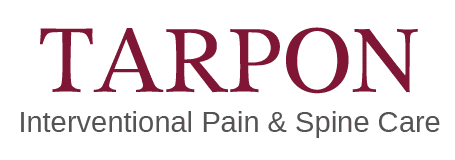
There are all kinds of lower back and leg pain. But when several different symptoms of pain – numbness, tingling, a shooting “electric” jolt that extends from the pelvis all the way to your toes – occur all at once, you may be suffering from a pinched (or compressed) nerve.
How would you know for sure and what should you do about it? Here are several tell-tale symptoms of a pinched nerve:
Your nervous systems extends from your brain and spinal cord throughout your body. When you have nerve compression, it sends a warning signal in the form of pain. The damage to a pinched nerve can range from minor to severe, causing only temporary discomfort or a long-term problem. That’s why the sooner you get a diagnosis for a pinched nerve, the faster you’ll find relief.
What causes the pressure on a pinched nerve? It’s usually the result of repetitive motion, but it can happen when keeping your body in the same position for too long a time. Nerves that travel through narrow spaces are the most vulnerable. That’s why nerve compression most often occurs when a nerve is squeezed between a ligament, a tendon, or a bone. For example, pressure on a nerve exiting the spine can cause neck and low back pain. A spinal nerve can become compressed as result of a weakened or torn (herniated) disc.
A pinched nerve in your neck or arm can cause symptoms in the elbow, hand, wrist and/or fingers, leading to conditions such as peripheral neuropathy, carpal tunnel syndrome, or tennis elbow. If left untreated, nerve compression can lead to fluid buildup that causes swelling and scarring that interferes with the nerve’s function.
Some of the common symptoms of a pinched nerve include:
- Pain in the area where the nerve is compressed
- Pain that radiates, such as sciatica
- Numbness or a tingling sensation
- A burning or “pins and needles” sensation all along the length of the nerve
- Joint weakness, particularly with certain activities
Depending on the severity and cause of a pinched nerve, the symptoms will go away in time – but they could get worse. Resting the injured area and avoiding activities that aggravate your symptoms is usually enough to slowly but surely recover from a pinched nerve. However, if symptoms persist, you should see your doctor for treatment that can shrink the swollen tissue around the pinched nerve.
Severe cases may require surgery to remove whatever is applying pressure to the nerve, such as scar tissue, disc material, or pieces of bone. However, treatment for mild to moderate sciatica includes:
- Nonsteroidal anti-inflammatory drugs (NSAIDs) such as ibuprofen or naproxen to reduce pain and swelling
- Oral corticosteroids
- Steroid injections
- Physical therapy to help stretch and strengthen muscles
- A splint or soft collar that limits motion, allowing muscles to rest
If you live in the Plano, Texas area, Tarpon Orthopedics can help you regain the ability to move pain-free. We are experts in sports medicine, spine, and pain management, as well as joint replacement. Call 9725961059 for a consultation today in our West Plano, North Plano, or Addison, Texas locations.
